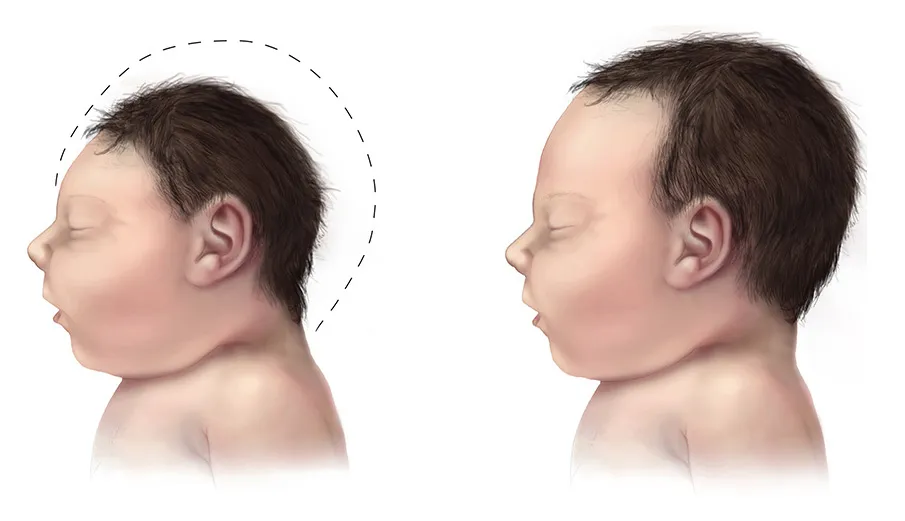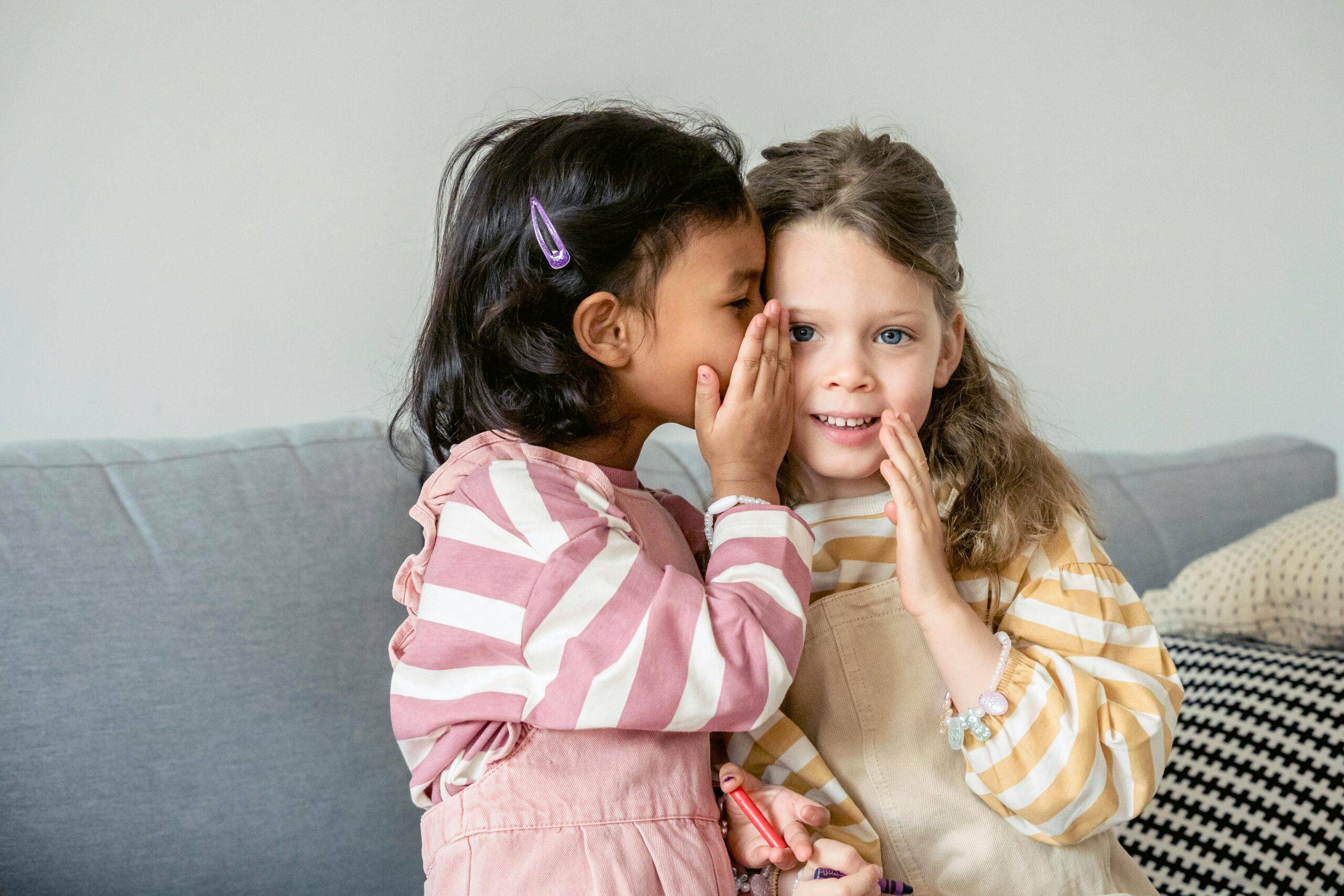Do you have a hard time letting your child sleep? Is dealing with sleep issues causing you sleepless nights as well? We’re sure every parent has been there. While it’s stressful to navigate through sleep challenges, do not ever leave them and give up just yet.
Sleep, especially in kids, is more important than you might believe. Your child had a long day filled with so many activities. He went to school, probably hung out with friends, and may even have gone to sports practice after school.
Plus, your child has homework to do when he gets home! By the end of the day, he’s probably exhausted.
Yet sometimes, even if he’s super tired, your child still can’t sleep!
Importance of Sleep in Child Development
By now, you should know that sleep is very important for your child’s physical and mental health —for your kids’ normal growth and development!
Also, adequate and high-quality sleep improves your child’s development. This includes their quality of life, memory, learning, attention, and behavior. Thus, you must learn how to instill good sleep habits in your child from an early age.
Sleep Hours Needed by Children
Sleep requirements vary with the child’s age. So, know the adequate sleep hours as your child grows. However, each child is unique and we only present here the common ranges of required sleep hours. For accuracy, it’s suggested to consult your child’s pediatrician.
Below are the number of sleep hours your kids need in a 24-hour period, and this includes naps.
- 0-2 months old 9-18 hours
- 2-12 months old 12-13 hours
- 12 months – 3 years old 11-13 hours
- 3-5 years old 11.5-12 hours
- 6-12 years old 9-10 hours
- 12-18 years old 8.5-9.5 hours

Common Sleep Issues in Children
A child’s health and development depend on getting enough sleep, but nearly half of all children experience sleep problems during childhood.
1. Insomnia
Insomnia happens when your child has difficulty falling asleep, staying asleep, or both. This unhealthy sleeping habit causes sleep disturbance, preventing your child from getting enough sleep. Symptoms in children include struggling to sleep and bedtime refusal.
Insomnia is one of the most common sleep disorders in children, affecting 20%-30% of this age group. There are different types of insomnia in children:
- Behavioral Insomnia
This is the most common among children under five and is characterized by sleep resistance, difficulty falling asleep, and frequent nighttime wakings.
These behaviors occur occasionally but are regarded as sleep disorders if they occur often or continually disrupt their normal functioning.
- Conditioned Insomnia
This is more common in older children and adolescents. This occurs when a child’s anxiety about bedtime and sleep prevents him or her from falling or staying asleep.
- Transient Sleep Disturbances
These are short-term bouts of insomnia that are caused by temporary disruptions in a child’s normal routine such as travel, illness, stressful life events, and similar situations.
If you think your child is experiencing bouts of insomnia, behavioral changes, such as establishing a consistent bedtime routine, may be needed. You may also consult with your child’s pediatrician for help.
2. Obstructive Sleep Apnea (OSA)
OSA is when your child’s throat tissues prevent air passage during sleep. This is often associated with loud and/or frequent snoring. And these frequent and brief lapses in breathing can significantly disrupt nighttime sleep.
It’s worth mentioning that snoring in children is fairly common and doesn’t always indicate a serious problem. If you believe that your kid has OSA, consult with his doctor. Your child’s pediatrician may recommend a sleep study or test in a sleep laboratory.
3. Sleepwalking and Bedwetting
Sleepwalking and bedwetting are also known as somnambulism and nocturnal enuresis. The former is a condition in which the child walks or engages in complex behaviors while sleeping. Nocturnal enuresis is involuntary urination during sleep.
Both sleepwalking and bedwetting typically resolve as the child ages. But if symptoms persist, consult a doctor to rule out serious underlying causes for a treatment plan.
4. Night Terrors
Night terrors are parasomnia in which the child awakens suddenly, terrified and panicked. While these are often nothing serious, just provide comfort and reassurance. However, if these happen frequently and disturb your child’s sleep, you may need to see your pediatrician.
If you decide to see a pediatrician about your child’s night terrors, it would be best to maintain a sleep diary on the frequency and duration of episodes as baseline data.
5. Restless Legs Syndrome
Also known as Willis-Ekbom disease, is a sleep-disturbing movement disorder that may be genetic. It’s characterized by the child’s overwhelming desire to move his legs. This is often painless.
Consult your pediatrician if your child has an uncontrollable urge to move his legs that worsens at night, and disrupts sleep.
6. Excessive Daytime Sleepiness
This is characterized when your child is overly sleepy or tired during the daytime. The symptoms include hyperactivity, fidgeting, aggressive behavior, and decreased alertness.
Excessive daytime sleepiness isn’t a disorder but a symptom associated with various sleep-related issues and health conditions. Your child’s pediatrician will conduct several screening methods to determine the underlying sleep issue.
7. Bruxism
Also known as teeth grinding is when your child involuntarily grinds his teeth regularly, especially at night. Some effects include headaches, tooth damage, and jaw muscle injury. This may go away and lessen as your child ages, but can also recur.
Your child’s pediatrician or dentist may give a mouthguard or provide psychotherapy and relaxation techniques to reduce your child’s stress and muscle tension.

Establishing a Healthy Sleep Routine for Your Child
We at Omega Pediatrics encourage you to instill good sleep habits in your children from the start. This is to avoid health complications due to the lack of sleep, especially during your child’s formative years.
Prioritize sufficient sleep for the whole family.
Understand the importance of getting enough sleep and how it affects your and your children’s overall health. You are your child’s role model. If everyone in the family practices good sleeping habits, your child will eventually follow and sets it as a standard.
2. Maintain a daily routine regularly.
The same time for waking up, eating meals, taking naps, and playing times shall be observed daily to establish a routine. This strategy will help your child feel secure and comfortable, resulting in a peaceful bedtime.
It’s also beneficial for young children to begin a bedtime routine early, such as brushing their teeth and reading books. With an established routine, dozing for restful sleep will come easy.
3. Let your child drink water before sleeping.
Some water is fine. But don’t offer anything else other than water. Tooth decay can be caused by juice, milk, or formula in the bottle, especially when fed before sleeping. If water isn’t possible, you can nurse your baby before putting him or her to sleep.
4. Don’t feed your baby solid foods if he is younger than 6 months.
Starting solid food earlier can disturb your baby’s digestion, thus disturbing sleep, through the night. If you give your baby solid food before their body can digest them, he may sleep worse due to a tummy ache.
5. Encourage an active lifestyle for the whole family.
Ensure your child has a variety of activities during the day, including moving around with sports or any physical activity, and fresh air. These activities will make your child feel ‘tired’ enough to have a good night of sleep.
6.Don’t let your child engage in many activities in one day.
In addition to homework, many children today have evening activities, such as after-school sports practice, school projects, meet-ups, and parties, making getting a good night’s sleep difficult. Take some time for them to relax and give your children some downtime.
7. Monitor your children’s screen time.
Keeping all screens— TVs, computers, laptops, tablets, and phones— out of children’s bedrooms, especially at night. Do this by turning off all screens at least 60 minutes or 1 hour before bedtime to avoid sleep disruption. Set limits on use before bedtime as well.
8. Maintain a conducive environment for sleeping.
Support your child’s sleep with a safe bedroom and home environment. The bedroom should be devoid of sources of noise and not near rooms of heavy activities during bedtime and throughout the night. This ensures a quiet atmosphere for sleeping.
The areas at home with heavy activities could be the kitchen, workroom, and garage where adults stay up later than the children’s bedtime. These activities should not distract your child’s sleep routines.
Also, dim the lights and adjust the thermostat for a comfortable room temperature. Don’t overcrowd the bed with toys.
Keep your child’s bed a sleeping place rather than a play area. This doesn’t mean, though, that your child can’t have any toys with him while sleeping. Help alleviate separation anxiety by having one or two toys, such as a favorite doll or bear or a security blanket.
9. Recognize sleep problems early.
The most common sleep problems in children are difficulty falling asleep, nighttime awakenings, snoring, stalling and resisting going to bed, sleep apnea, and loud or heavy breathing. Be watchful of these symptoms, they might have serious underlying issues.
10. Evaluate your children’s behavior outside the home.
Sleep issues can also manifest during the day. A child who doesn’t get enough or gets poor quality sleep may have trouble paying attention or “zoning out” in school. Inform your child’s teacher that you want to be notified of these behaviors, falling asleep in class, or other behavioral issues.
How Your Pediatric Doctor Helps with Sleep Concerns
Most children have an occasional night or two of poor sleep. Constant sleep disturbances, or unusual signs that frequently prevent a good night’s sleep, on the other hand, are generally cause for concern.
When To See A Pediatrician
Sleep is integral to a child’s growth and development. While sleep conditions are usually harmless, if you observe chronic sleep loss and widespread sleep disturbances in your child, you may have to consult with the primary healthcare physician.
How Your Child’s Pediatrician Can Help
Firstly, the pediatrician will assess your child’s sleeping conditions. Then, he may recommend you to a sleep medicine specialist for an overnight sleep study in a sleep clinic. Their collaboration will draw up the appropriate sleep treatment plan.
Discuss Your Child’s Sleeping Patterns With A Pediatrician
Discuss your child’s sleeping habits and issues with his pediatrician, as most sleep issues are easily treated. The doctor may request that you keep a sleep log for easy monitoring, and make recommendations for improvements to your child’s sleeping habits.
In as much as your child’s pediatrician at Omega Pediatrics strive for holistic care for their young patients, your child’s sleep health is also closely looked into. Rest assured your child is in better hands with Omega Pediatrics.




